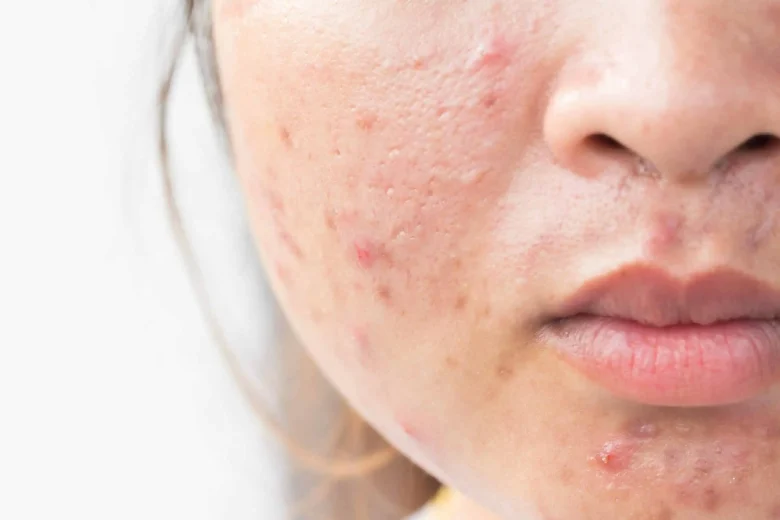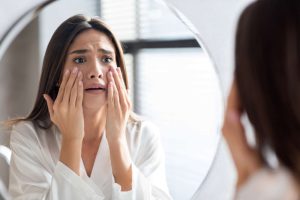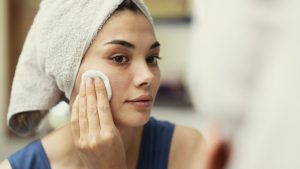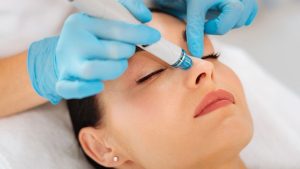Acne scars can impact one’s confidence. However, applying the right measures can help one heal over time. Acne scars occur from skin healing after breakouts, leaving behind indents or markings. Some scars can be treated, while others can become permanent if not managed properly. Using treatment that facilitates skin healing and increases collagen production is the best way to fade acne scars quickly. Clearer skin can be achieved with a blend of professional services, skincare ingredients, and home remedies.
Recognizing Different Kinds of Scar Marks
Not all acne scars are the same. Different scarring types determine the treatment method. Scarring can be atrophic, which manifests as a slot in the skin, or hypertrophic, a raised pal as scar tissue. Atrophic scars include ice pick scars, which are deep and narrow; boxcar scars, which have sharp edges; and rolling scars, which create a wave-like appearance. In addition, active acne scars also contribute to the never-ending battle against hyperpigmentation, where the skin develops dark patches post-inflammation. Knowing the type of scars helps in determining the best course of treatment.
The Role of Skincare in Fading Acne Scars
Effective acne scar management requires incorporating a proper skincare regimen. Active ingredients like retinol, vitamin C, niacinamide, and AHAs are effective in reducing the appearance of scars too. Retinol helps increase cell regeneration, and vitamin C helps in boosting collagen and reducing dark patches. Exfoliation with AHAs like glycollic acid improves the texture of the skin by getting rid of dead skin. Niacinamide assists in reducing inflammation and achieving skin tone balance. Using skincare products requires time and is gradual; therefore, patience is essential.
Treating Skin Scars and Acne With Chemical Peels
Chemical peel treatments are an option that speeds up skin regeneration. They consist of removing the skin’s outer layer by polishing or exfoliating it with a certain chemical agent, which leads to smoother and better skin. Superficial scars can be treated with glycollic or lactic acid peels. More severe scars will need stronger trichloroacetic acid (TCA) peels. Repeated applications aid in fading scars and significantly improving the texture of the skin better than other treatments.
Microneedling for the Stimulation of Collagen Production
Microneedling is a technique that utilises a device with small needles to make micro “injuries” onto the skin to improve the appearance of acne scars. This is done by collagen induction therapy, which essentially uses the body’s natural healing response to fill in atrophic scars with collagen over time. Derma rollers can be used at home, but professional treatments are always more effective. The effects of microneedling can be further boosted by combining it with serums containing hyaluronic acid or peptides. Like all cosmetic processes, it is critical that the area is prepped properly by a qualified professional using particular devices or techniques.
Laser Treatments for The Worst of Acnes Scars
Patients suffering from severe acne have an option to consider skin laser therapy as one of the top treatments. This therapy, which employs lasers, works by targeting the damaged and scarred skin in order to promote collagen growth. For deep scars, fractional laser resurfacing and CO2 lasers work best. Pulsed dye lasers focus around the redness and pigmentation. Although most laser treatments take a fair amount of sessions for best results, there’s no denying how effective they are for overall skin texture and visibility of scars. One must always see a competent consultant because one type of laser treatment does not satisfy the needs for all skin types.
The Benefits of Dermabrasion and Microdermabrasion
Microdermabrasion and dermabrasion procedures may assist in the reduction of acne scars with deep exfoliating treatments. Deep skin abrasions are capable of treating deep-rooted scarring but do take considerable downtime for recovery. Removing the top level of skin allows new skin to heal. For mild scarring pigmentation, microdermabrasion is the gentler alternative, utilising miniature crystals to remove dead skin and beat off the scarring. All in all, both procedures are effective in maintaining skin vitality while smoothing out pockmarks and burn scars over time.
Home Remedies for Lightening Acne Scars
While natural treatments are not as effective as cosmetic surgery, when mixed with topical medication, they can be beneficial. The inflammation caused by wounds is soothed, and skin healing is boosted drastically with aloe vera. The blast of acids present in lemon does fade dark spots, but like every strong remedy, it comes with it’s own warnings. Aloe is another solution with side effects; blend it with turmeric and raw honey; it possesses anti-inflammatory properties, which, if blended, improve skin tone and serve great for skin. A more distilled approach for skin healing is rosehip feet and wind beats; both extracts aid in healing due to their strong antioxidants. Although long-term, these remedies provide the most effective solution.
The Role of Vitamin D and Diet in Healthier Skin
Beyond aiding the healing of acne scars, the sun serves as an excellent source of vitamin D to improve overall skin health. Of course, overexposure should be avoided as it can worsen and create hyperpigmentation scars. Eating a balanced diet rich in antioxidants such as vegetables and dairy is especially useful. Although difficult, processed foods and excess sugar intake should be avoided to prevent further acne breakouts, which may result in new scars. Drinking water regularly improves the skin’s elasticity.
The Role of Sunscreen in Hyperpigmentation Treatment
Lastly, but most importantly, using a broad-spectrum sunscreen that has an SPF rating of 30 or higher greatly assists in preventing the worsening of scars from hyperpigmentation. Moreover, regular skin protection helps maintain the long-term treatment result. Protection from makeup and clothing that aids in blocking UV rays is also helpful in further scar healing.
Recognizing Acne Scars that Need Professional Attention
For some, acne can severely affect their self-image. When at-home care does not work, then it is time to seek assistance from a skincare professional. A dermatologist can assess which of the advanced procedures (like laser treatment, microneedling, and chemical peels) is best for the individual’s skin concerns. Professionals are best when it comes to achieving custom treatment plans tailored to the particular skin type and the amount of scarring that needs to be dealt with. This is especially true if the goal is to safely and effectively minimise scarring over the long term.
Conclusion
It is often believed that the most stubborn acne scars are the most difficult to address or require a significant amount of effort. However, this is not true. The ideal approach is to be consistent and methodical when applying different skincare products containing active ingredients, professional treatment options like chemical peels and microneedling, as well as sun protection and a healthy lifestyle. Simply put, some care combined with time will facilitate self-healing and ultimately result in the repair of the scars. If certain stubborn scars are not fading within a reasonable time, then one should consider seeking further specialised help to maximise effective results. After all, it is going to take effort on the individual’s part to ensure that they ultimately achieve skin that is smoother with an even skin tone.
FAQs
1. Is there a set time frame that one can expect to see when trying to fade acne scars?
The result that one seeks will significantly rely on treatment, severity, and the specific scar one is targeting. Mild scarring should fade after a few months, while more severe scarring can take anything from a few months to a maximum of one year with continuous treatment.
2. Are home remedies effective for acne scars?
Aloe vera, honey, and turmeric have proven effective as remedies to lighten scars; however, their effectiveness alone will not be sufficient in treating severe scars since these methods are incredibly slow and better suited for milder cases.
3. Does sunscreen help with acne scars?
Indeed, in addition to inhibiting the darkening of scars, sunscreen accelerates healing. It is advisable to wear sunscreen with SPF 30 and higher every day.
4. Which professional treatment is best for acne scars?
Laser therapies are best for severe scarring, while chemical peels are better for pigmentation, and microneedling is more effective for atrophied scars. The kind of scar helps determine which treatment works best.
5. Can microneedling completely remove acne scars?
Microneedling treats acne scarring by stimulating collagen production in the skin and, over time, achieving excellent-looking skin. Although deep scars may never fully disappear, several sessions will be required to achieve optimal results.




